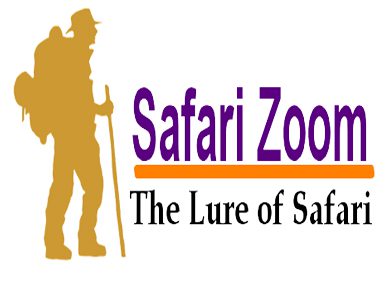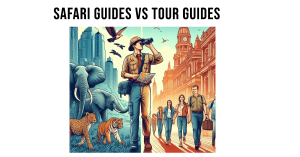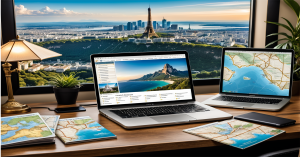Navigating Travel and Tourism Interviews: Tips for Success
Introduction
In the competitive world of travel and tourism, securing a job requires more than just a passion for exploring new places. Preparing for travel-related job interviews is crucial to standing out among other candidates. This comprehensive guide will provide you with practical advice on researching the employer, matching job requirements, and timing considerations, ensuring you are well-prepared to ace your interview.
Researching the Employer
Understand the Company’s Mission and Values
Before your interview, it is essential to research the company’s mission and values. Understanding what drives the organization will help you align your answers with their goals and demonstrate that you are a good fit for their team.
Analyze Their Services and Products
Take the time to analyze the services and products offered by the company. Whether they specialize in luxury travel, Medical tourism, adventure tourism, or corporate travel, knowing their offerings will enable you to tailor your responses to highlight relevant experiences and skills.
Read Recent News and Press Releases
Stay updated with the latest news and press releases about the company. This will not only give you a sense of their recent achievements and initiatives but also provide talking points that show your genuine interest in their operations.
Matching Job Requirements
Review the Job Description Thoroughly
Start by thoroughly reviewing the job description. Identify the key responsibilities and required skills. Make a list of how your past experiences and skills match these requirements, and prepare to discuss them during the interview.
Highlight Relevant Experiences
During the interview, be sure to highlight relevant experiences that align with the job description. Use the STAR method (Situation, Task, Action, Result) to structure your responses and provide clear examples of how you have successfully handled similar tasks in the past.
Demonstrate Industry Knowledge
Showcasing your industry knowledge can set you apart from other candidates. Discuss recent trends, challenges, and opportunities in the travel and tourism sector. This will demonstrate your passion and commitment to the industry.
Timing Considerations
Schedule Interviews at Optimal Times
When possible, try to schedule your interviews at optimal times. Avoid early mornings and late afternoons when interviewers might be less alert. Mid-morning or early afternoon slots are often ideal. Setting mid-morning or early afternoon as the interview time is often considered ideal for several reasons:
• Freshness and Alertness: During mid-morning (around 10:00 AM) or early afternoon (around 2:00 PM), most people are awake, alert, and mentally sharp. It’s after the initial morning grogginess but before the post-lunch energy dip.
• Circadian Rhythms: Our body’s natural circadian rhythms tend to peak during these hours, making us more focused and receptive. This can positively impact both the interviewer and the interviewee.
• Avoiding Rush Hour: Scheduling interviews during mid-morning or early afternoon helps avoid rush hour traffic. Commuting stress can affect a candidate’s mindset, so choosing non-peak hours is beneficial.
• Preparation Time: Mid-morning allows candidates to prepare adequately without feeling rushed. They have time to review their notes, research the company, and mentally prepare for the interview.
• Lunch Considerations: Scheduling interviews right after lunch (early afternoon) ensures that candidates aren’t hungry or distracted during the interview. It also avoids potential scheduling conflicts related to lunch breaks.
Plan for Potential Delays
Account for potential delays by planning your route to the interview location and allowing extra time for unforeseen circumstances. Arriving early demonstrates punctuality and gives you time to compose yourself before the interview. Additionally, Arriving at an interview early is crucial for several reasons:
• Professionalism: Punctuality demonstrates professionalism and respect for the interviewer’s time. Being early shows that you take the opportunity seriously and value the chance to discuss your qualifications.
• First Impressions: The first few minutes of an interview are critical. Arriving early allows you to compose yourself, catch your breath, and enter the interview room with confidence. Rushing in late can create a negative impression.
• Technical Issues: If the interview involves any technical setup (such as logging into a virtual meeting platform), arriving early gives you time to address any issues. You can test your microphone, camera, and internet connection without feeling rushed.
• Navigational Challenges: Arriving early accounts for unexpected delays, such as traffic, parking difficulties, or getting lost. It ensures that you’re not flustered or stressed when you arrive.
• Observing Company Culture: Being early allows you to observe the company’s environment. You might notice interactions among employees, office layout, or other cues that provide insights into the company culture.
• Reviewing Notes: Use the extra time to review your notes, revisit key points about the company, and mentally prepare for the interview questions.
Remember, arriving early doesn’t mean you need to be excessively early, aim for about 10-30 minutes before the scheduled time. It’s a small investment that can significantly impact your interview experience
Follow Up Appropriately
After the interview, sending a thank-you email is not mandatory, but it is highly recommended. Send a thank-you email within 24 hours, expressing your appreciation for the opportunity and reiterating your enthusiasm for the role. This can leave a positive impression and keep you top-of-mind for the hiring managers. It shows appreciation for the interviewer’s time and effort and reflects your professionalism and respect.
Preparing for Common Interview Questions
Tell Me About Yourself
This common opening question is your chance to make a strong first impression. Craft a brief, compelling summary of your professional background, emphasizing experiences and skills relevant to the travel and tourism industry.
Why Do You Want to Work Here?
Employers ask this to gauge your interest in their company. Use your research to highlight specific aspects of the company that attract you, such as their reputation, culture, or innovative approach to travel services.
Describe a Challenging Situation and How You Handled It
Prepare a specific example that demonstrates your problem-solving skills and ability to stay calm under pressure. Use the STAR method to structure your response, ensuring you clearly articulate the situation, your actions, and the positive outcome.
Showcasing Soft Skills
Communication Skills
Effective communication is vital in the travel and tourism industry. Provide examples of how you have successfully communicated with clients, colleagues, or stakeholders in previous roles. Highlight any experience in handling customer inquiries, resolving conflicts, or presenting information clearly.
Customer Service Orientation
Customer service is at the heart of the travel and tourism industry. Share instances where you have gone above and beyond to ensure customer satisfaction. Discuss any positive feedback or recognition you received as a result of your efforts.
Adaptability and Flexibility
The dynamic nature of the travel industry requires adaptability. Talk about situations where you had to adapt to changing circumstances or handle unexpected challenges. Emphasize your ability to remain flexible and maintain a positive attitude.
Dressing for Success
Professional Attire
Choose professional attire that aligns with the company culture. For most travel-related positions, business casual is appropriate, but it’s always better to err on the side of being slightly overdressed than underdressed.
Personal Grooming
Pay attention to personal grooming. Ensure your hair is neat, your clothes are clean and pressed, and your overall appearance is polished. A professional appearance can boost your confidence and make a good impression.
Conclusion
Preparing for a travel and tourism job interview requires thorough research, careful preparation, and the ability to showcase your relevant skills and experiences. By understanding the employer, matching job requirements, considering timing, and practicing common interview questions, you can confidently navigate your way to success. Follow these tips to stand out as the best candidate and secure your dream job in the exciting world of travel and tourism.




